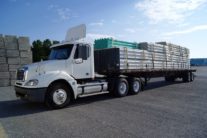The utilization of reverse mortgages as a financial strategy for entrepreneurial ventures, especially in the food truck industry, prompts a fascinating discussion. Although seemingly disparate, there exists an intriguing link between these two elements. By unlocking the equity potential in homeownership, older entrepreneurs could potentially fund their mobile culinary enterprises. This approach merges retirement planning with business investment in a unique way, posing a compelling exploration of its viability and potential drawbacks. Are you prepared to uncover this unconventional intersection of finance and enterprise?
Key Takeaways
- AmeriVerse Reverse Mortgage can provide essential funding for food truck venture start-ups by tapping into home equity.
- The financial flexibility of reverse mortgages reduces capital risks and promotes entrepreneurial success in the food industry.
- Real-world success stories highlight the viability of using reverse mortgages for funding food truck businesses.
- This unconventional financial strategy merges retirement planning with business investment, requiring careful exploration of its viability and drawbacks.
Understanding Reverse Mortgages
In order to fully grasp the potential connection between reverse mortgages and food truck ventures, it is imperative to first comprehend the intricate mechanics of reverse mortgages. A reverse mortgage is a financial tool that allows homeowners aged 62 or older to convert a portion of their home equity into cash while retaining homeownership.
One of the prevalent mortgage misconceptions is that the lender will own your home in a reverse mortgage. In reality, the borrower retains title and ownership during the life of the loan, and can choose to sell the home at any point, with the proceeds from the sale used to pay off the reverse mortgage.
However, eligibility criteria must be met to secure a reverse mortgage. The borrower must live in the house as their primary residence, must have enough equity in the home, and must meet certain financial obligations, such as keeping up with property taxes and insurance. Failure to meet these obligations may lead to the loan becoming due and payable. Understanding these key aspects of a reverse mortgage can aid in making informed decisions pertaining to food truck ventures.
Financing Your Food Truck Venture
Given the comprehension of reverse mortgages, it becomes feasible to explore how this financial tool might be utilized to finance a food truck venture. Financing is a critical element to any business venture, and a food truck is no exception. Initial costs can be substantial, even before considering operational expenses, and this is where a reverse mortgage can offer a viable solution.
To delve into specifics, two significant upfront costs in this venture are Truck Design Concepts and Menu Planning Strategies. The former involves the physical build and aesthetics of your truck, while the latter requires careful planning and potentially hiring a seasoned chef or culinary consultant. Both are integral to the success of your food truck venture and require a substantial financial investment.
A reverse mortgage, a loan that allows homeowners to convert a portion of their home equity into cash, can potentially provide the necessary funds. It offers a one-time lump sum or an ongoing stream of payments, providing flexibility in managing these costs.
Utilizing this unconventional financing tool, you can effectively manage and distribute your financial resources, thus ensuring a strong start for your food truck venture. The connection between reverse mortgages and your food truck venture is indeed an alternative worth exploring.
Reverse Mortgages as Business Capital
Leveraging reverse mortgages as business capital offers a unique perspective on financing, particularly when dissecting its potential benefits for your food truck venture. A reverse mortgage, traditionally used to provide income for homeowners over 62, can be a surprising source of capital. This method of financing can pivot your business towards growth, while mitigating the Capital Risks associated with more traditional lending methods.
- Mortgage Flexibility: Reverse mortgages offer excellent flexibility. You can use the funds as you see fit, whether it’s for purchasing new equipment, hiring staff, or expanding operations.
- Reduced Capital Risks: Instead of struggling with high-interest loans, a reverse mortgage can be repaid when the home is sold, alleviating pressure on your business’s cash flow.
- Asset Utilization: Home equity, often a dormant asset, can be activated to bolster your food truck venture.
However, it’s vital to weigh these benefits against potential downsides. For instance, the loan balance increases over time as interest on the loan accumulates. Additionally, your heirs may have to repay the loan upon your death. Thus, careful financial planning is paramount when considering reverse mortgages as business capital.
Case Studies: Reverse Mortgage Successes
Examining real-world examples can further illuminate the potential of reverse mortgages in supporting successful food truck ventures. An increasing number of entrepreneurs are leveraging their home equity, taking advantage of the mortgage benefits to fund their businesses.
One such success story is that of Laura and John, a couple from New York. They used a reverse mortgage to transform their passion for gourmet food into a thriving food truck business. By using their home equity, they obtained the necessary capital to purchase a state-of-the-art food truck and procure high-quality ingredients. The success of their venture is a testament to the potential of reverse mortgages as a financial tool for entrepreneurship.
Another entrepreneur, Richard from Texas, also used a reverse mortgage to fund his food truck venture. Despite the initial challenges, his business is now a staple at local events and a favorite among residents. Richard’s success story exemplifies the resilience and innovative thinking that characterizes many food truck business owners.
These case studies underscore the potential of reverse mortgages for those seeking alternative funding sources for their food truck business. By leveraging their home equity, these entrepreneurs have turned their dreams into reality, demonstrating the tangible benefits of this often-overlooked financial tool.
Conclusion
In conclusion, reverse mortgages present an unconventional but potentially lucrative pathway for funding a food truck business. While it comes with its own set of risks and challenges, successful case studies have demonstrated its viability as an alternative financing option. Aspiring entrepreneurs should therefore consider reverse mortgages, alongside traditional funding methods, when exploring ways to kickstart their food truck venture.



